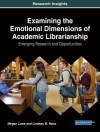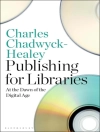This book focuses on data and knowledge management for teaching and research in Africa. The importance of the information and knowledge society in current times is recognized and adopts a meta-analysis to demonstrate that modernization theory could be applied to economic development and rapid transformation of ISWEs in South Africa. The book argues that modernity and the information and knowledge society present the shift and transition from the traditional way of doing things through information and communication technologies (ICTs), which could bring about developing, progressing, and advancing developing communities, particularly Informal Sector Women Entrepreneurs (ISWEs). The book also has further shows how the modernization theory could be applied to the plight of ISWEs to assist them in leapfrogging from their situation and enjoying global business platforms. Various techniques and strategies for collaborative engagements among academics towards strengthening scholarly ties within institutions, and across borders, especially in Africa, are presented. This is a valuable source for understanding the contemporary issues in information and knowledge management/sharing and collaboration among university academics for undergraduates and postgraduate students in the library and information science profession. Tacit knowledge is also presented as an asset that boosts innovation and generates competitive advantage for organizations in all walks of life. Global research data management (RDM) literature is emphasized in higher education institutions (HIEs) and their libraries. The status of RDM services, as well as the competency requirements of employees responsible for providing RDM services and researchers, are addressed in the examined literature.
Tabela de Conteúdo
Applying Modernization Theory for Information and Knowledge Empowerment of Informal Sector Women Entrepreneurs in South Africa.- Information and Knowledge Sharing Among University Academics.- Tacit Knowledge Management Strategies of Small and Medium Scale Enterprises.- Research Data Management (RDM) in Public Universities in South Africa.- How Much is LIS Research Worth to Sustainable Development Goals Research.- Reflections on Trends, Challenges, and Opportunities of LIS Research in South Africa.- The Effect of Current Knowledge Management Practices on Performance of Health Sector NGOs in Nairobi City County, Kenya.
Sobre o autor
Dennis Ocholla, Ph.D., joined the University of Zululand as Professor and Head of the Department of Library and Information Science (1996-2014) and was appointed Senior Professor at the University in 2006.(He served as Deputy Dean for 10yrs and Dean for 2yrs as well) His research and teaching interests include information seeking, ICT4D/human computer interaction-user interfaces, data science and bibliometric /informetrics, information ethics, scholarly communication, and research methods. He retired from the University of Zululand in 2022 and currently serves as a Research Fellow.
Omwoyo Bosire Onyancha, Ph.D., is a Research Professor in the Department of Information Science at the University of South Africa. His areas of research interest include informetric and scientometrics, information and knowledge management, science communication, and knowledge mobilization. Dr. Onyancha has explored these areas of research in order to advance the academic and societal understanding of how information and knowledge are created, disseminated, and utilized in various contexts.
Aderonke Olaitan Adesina, Ph.D., is the International Students Employability Project Officer at Nottingham Trent University. She has garnered work experience in the health, education, and consulting sectors over the last 25 years. Dr. Adesina earned her bachelor’s and master’s degrees in physics and information science, respectively, from the University of Ibadan, Nigeria, and her doctoral degree from the University of Zululand, South Africa.












